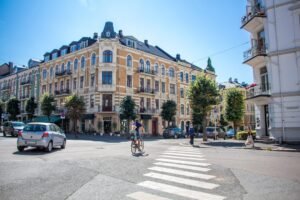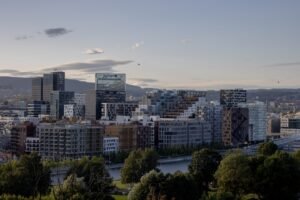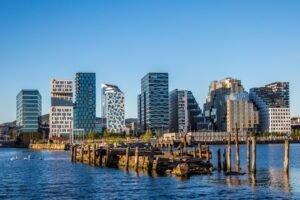
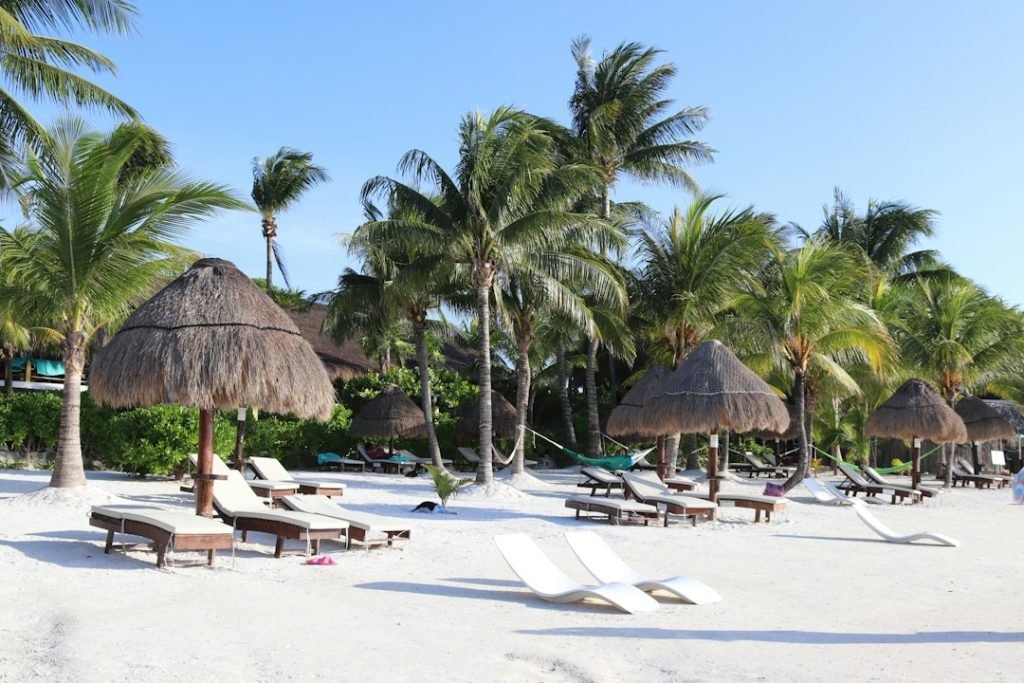
Norwegian Vocabulary for Beach and Coastal Adventures
Norway is known for its stunning coastline, which stretches over 25,000 kilometers and is dotted with beautiful beaches. From the rugged cliffs of the Lofoten Islands to the sandy shores of the Oslofjord, there are endless opportunities for beach and coastal adventures in Norway. Whether you’re looking to relax on the beach, try your hand at water sports, or explore the rich marine life, Norway has something for everyone.
One of the most popular activities for beach and coastal adventures in Norway is swimming. With its crystal-clear waters and pristine beaches, Norway offers a unique swimming experience. Whether you prefer to take a dip in the refreshing fjords or brave the chilly waters of the North Sea, there are plenty of options for swimmers of all levels. In addition to swimming, other popular water sports in Norway include surfing, windsurfing, kayaking, and canoeing.
Table of Contents
ToggleBasic Norwegian Vocabulary for Beach and Coastal Adventures
Before embarking on your beach and coastal adventures in Norway, it’s helpful to have some basic Norwegian vocabulary under your belt. This will not only make it easier to communicate with locals but also enhance your overall experience. Here are some essential words and phrases to get you started:
Greetings and introductions:
– Hei (Hello)
– God morgen (Good morning)
– Ha det bra (Goodbye)
– Hva heter du? (What is your name?)
– Jeg heter… (My name is…)
Common phrases for ordering food and drinks:
– En kopp kaffe, takk (One cup of coffee, please)
– Kan jeg få regningen? (Can I have the bill?)
– Jeg vil gjerne bestille… (I would like to order…)
– Har dere vegetariske alternativer? (Do you have vegetarian options?)
Numbers and counting:
– En (One)
– To (Two)
– Tre (Three)
– Ti (Ten)
– Hundre (Hundred)
Words for Swimming and Water Sports in Norwegian
If you’re planning to engage in swimming or water sports during your beach and coastal adventures in Norway, it’s helpful to know some relevant vocabulary. Here are some words and phrases related to swimming and water sports in Norwegian:
Vocabulary for swimming and diving:
– Svømming (Swimming)
– Dykking (Diving)
– Basseng (Pool)
– Strand (Beach)
– Livredning (Lifeguard)
Words for surfing and windsurfing:
– Surfing (Surfing)
– Vindseiling (Windsurfing)
– Bølger (Waves)
– Brett (Board)
– Våtdrakt (Wetsuit)
Terms for kayaking and canoeing:
– Kajakk (Kayak)
– Kano (Canoe)
– Padle (Paddle)
– Elv (River)
– Fjord (Fjord)
Vocabulary for Beach Activities in Norwegian
When it comes to beach activities, Norway has plenty to offer. Whether you’re looking to relax on the sand, play beach volleyball, or build sandcastles, here are some useful words and phrases to enhance your beach experience:
Words for sunbathing and relaxing:
– Soling (Sunbathing)
– Strandstol (Beach chair)
– Parasoll (Parasol)
– Solkrem (Sunscreen)
– Håndkle (Towel)
Terms for beach volleyball and frisbee:
– Strandvolleyball (Beach volleyball)
– Frisbee (Frisbee)
– Netting (Net)
– Spillere (Players)
– Serve (Serve)
Vocabulary for building sandcastles:
– Sandslott (Sandcastle)
– Spade (Shovel)
– Bøtte (Bucket)
– Vann (Water)
– Skulptur (Sculpture)
Norwegian Words for Fishing and Boating
Norway is a paradise for fishing enthusiasts and boating enthusiasts alike. Whether you’re casting a line in the fjords or sailing along the coast, here are some essential words and phrases to enhance your fishing and boating experience:
Vocabulary for fishing equipment and techniques:
– Fiskestang (Fishing rod)
– Sluk (Lure)
– Agn (Bait)
– Fiskebåt (Fishing boat)
– Fisking (Fishing)
Words for boating and sailing:
– Båt (Boat)
– Seiling (Sailing)
– Motorbåt (Motorboat)
– Seilbåt (Sailboat)
– Skipper (Captain)
Terms for navigating the waters:
– Kart (Map)
– Kompass (Compass)
– Navigasjon (Navigation)
– Fyr (Lighthouse)
– Redningsvest (Life jacket)
Essential Phrases for Navigation and Safety in Norwegian
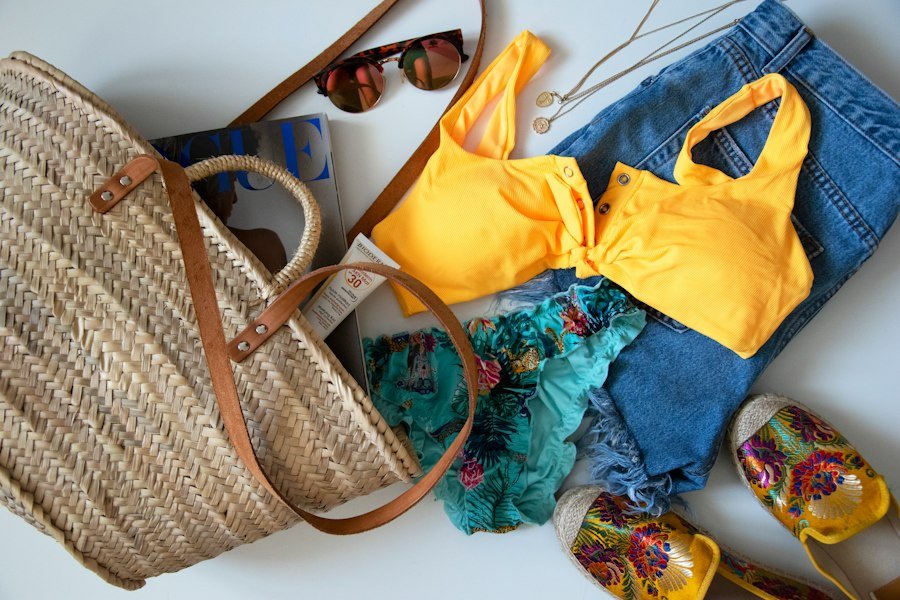
When exploring the beaches and coastlines of Norway, it’s important to be familiar with some essential phrases for navigation and safety. Here are some words and phrases that can come in handy:
Words for directions and locations:
– Hvor er…? (Where is…?)
– Til høyre (To the right)
– Til venstre (To the left)
– Rett frem (Straight ahead)
– Nærmeste strand (Nearest beach)
Vocabulary for emergency situations:
– Hjelp! (Help!)
– Brann! (Fire!)
– Ambulanse (Ambulance)
– Politi (Police)
– Nødutgang (Emergency exit)
Terms for weather and tides:
– Vær (Weather)
– Sol (Sun)
– Regn (Rain)
– Vind (Wind)
– Flom (Flood)
Norwegian Vocabulary for Coastal Hiking and Trekking
Norway is a hiker’s paradise, with its rugged coastline and breathtaking landscapes. If you’re planning to go coastal hiking or trekking during your beach adventures in Norway, here are some essential words and phrases to enhance your experience:
Words for hiking and trekking equipment:
– Tursko (Hiking boots)
– Ryggsekk (Backpack)
– Telt (Tent)
– Kikkert (Binoculars)
– Kart (Map)
Vocabulary for trail markers and signs:
– Sti (Trail)
– Merke (Marker)
– Skilt (Sign)
– Toppen (Summit)
– Utsiktspunkt (Viewpoint)
Terms for camping and outdoor cooking:
– Campingplass (Campsite)
– Bål (Campfire)
– Grill (Grill)
– Matlaging (Cooking)
– Matpakke (Packed lunch)
Words for Wildlife and Nature in Norwegian
Norway is home to a diverse range of flora and fauna, making it a haven for nature lovers. Whether you’re interested in birdwatching or whale watching, here are some essential words and phrases to enhance your wildlife and nature experiences:
Vocabulary for flora and fauna:
– Skog (Forest)
– Fjell (Mountain)
– Blomst (Flower)
– Tre (Tree)
– Dyreliv (Wildlife)
Words for birdwatching and whale watching:
– Fuglekikking (Birdwatching)
– Hvalkikking (Whale watching)
– Kikkert (Binoculars)
– Fugl (Bird)
– Hval (Whale)
Terms for nature conservation and preservation:
– Naturvern (Nature conservation)
– Miljøvern (Environmental protection)
– Vernede områder (Protected areas)
– Bærekraftig (Sustainable)
– Gjenbruk (Recycling)
Cultural and Historical Vocabulary for Coastal Norway
Norway has a rich cultural and historical heritage, and exploring the coastal regions can provide insights into the country’s past. Here are some words and phrases related to Norwegian culture and history:
Words for traditional Norwegian culture and customs:
– Bunad (Traditional costume)
– Folkedans (Folk dance)
– Matkultur (Food culture)
– Tradisjoner (Traditions)
– Høytid (Holiday)
Vocabulary for historical landmarks and sites:
– Slott (Castle)
– Kirke (Church)
– Festning (Fortress)
– Museet (Museum)
– Ruiner (Ruins)
Terms for local festivals and events:
– Festival (Festival)
– Konsert (Concert)
– Marked (Market)
– Parade (Parade)
– Feiring (Celebration)
Enrolling in a Norwegian Language Course for Beach and Coastal Adventures
If you’re planning to spend a significant amount of time in Norway for beach and coastal adventures, enrolling in a Norwegian language course can greatly enhance your experience. Here are some benefits of learning Norwegian for beach and coastal adventures:
Benefits of learning Norwegian for beach and coastal adventures:
1. Improved communication with locals: Learning the local language will allow you to communicate more effectively with locals, making your interactions more meaningful.
2. Enhanced cultural understanding: By learning Norwegian, you’ll gain a deeper understanding of the local culture and customs, enriching your overall experience.
3. Increased safety: Knowing the language can help you navigate emergency situations more effectively and ensure your safety while exploring the beaches and coastlines of Norway.
Options for language courses in Norway:
– Language schools: There are numerous language schools in Norway that offer Norwegian language courses for foreigners. These schools provide structured lessons and opportunities for practice.
– Online courses: If you prefer a more flexible learning option, there are also online courses available that allow you to learn at your own pace and from the comfort of your own home.
– Language exchange programs: Another option is to participate in language exchange programs, where you can meet locals who are interested in learning your native language while helping you improve your Norwegian.
Tips for practicing and improving language skills while on vacation:
– Immerse yourself in the language: Try to surround yourself with the Norwegian language as much as possible by listening to local radio stations, watching Norwegian TV shows or movies, and reading books or newspapers in Norwegian.
– Practice with locals: Don’t be afraid to strike up conversations with locals and practice your language skills. Most Norwegians are friendly and welcoming, and they will appreciate your efforts to learn their language.
– Keep a journal: Write down new words and phrases that you learn during your beach and coastal adventures in Norway. This will not only help you remember them but also serve as a record of your experiences.
In conclusion, beach and coastal adventures in Norway offer a wide range of activities for nature lovers and outdoor enthusiasts. Whether you’re swimming in the crystal-clear waters, exploring the diverse marine life, or hiking along the rugged coastline, knowing some basic Norwegian vocabulary can greatly enhance your experience. From greetings and introductions to words for water sports, fishing, hiking, and wildlife, learning Norwegian will not only help you communicate with locals but also deepen your understanding of the country’s culture and history. So why not enroll in a Norwegian language course before your next beach adventure in Norway?
If you’re planning a beach or coastal adventure in Norway, it’s essential to brush up on your Norwegian vocabulary. Knowing the right words can enhance your experience and help you communicate with locals. In addition to learning beach-related terms, it’s also helpful to have a good grasp of everyday Norwegian phrases. For example, if you need to call in sick while on vacation, this article on “Calling in Sick in Norwegian” can be quite handy. Check it out here for useful tips and phrases to navigate such situations effectively.
FAQs
What is the article about?
The article is about Norwegian vocabulary related to beach and coastal adventures.
Why is it important to learn Norwegian vocabulary for beach and coastal adventures?
Learning Norwegian vocabulary for beach and coastal adventures can help you communicate effectively with locals and navigate your way around the area.
What are some common Norwegian words related to beach and coastal adventures?
Some common Norwegian words related to beach and coastal adventures include strand (beach), kyst (coast), bølger (waves), svømming (swimming), soling (sunbathing), og bading (bathing).
Are there any cultural differences to keep in mind when participating in beach and coastal activities in Norway?
Yes, it is important to be aware of cultural differences when participating in beach and coastal activities in Norway. For example, it is common for Norwegians to swim in the nude, so it is important to respect their customs and norms.
What are some safety tips to keep in mind when participating in beach and coastal activities in Norway?
Some safety tips to keep in mind when participating in beach and coastal activities in Norway include being aware of the weather conditions, wearing appropriate clothing and footwear, and being cautious of strong currents and rip tides. It is also important to follow any posted signs or warnings.
If you want to learn Norwegian, you can register for classes here. We look forward to hearing from you and helping you become fluent in Norwegian.


